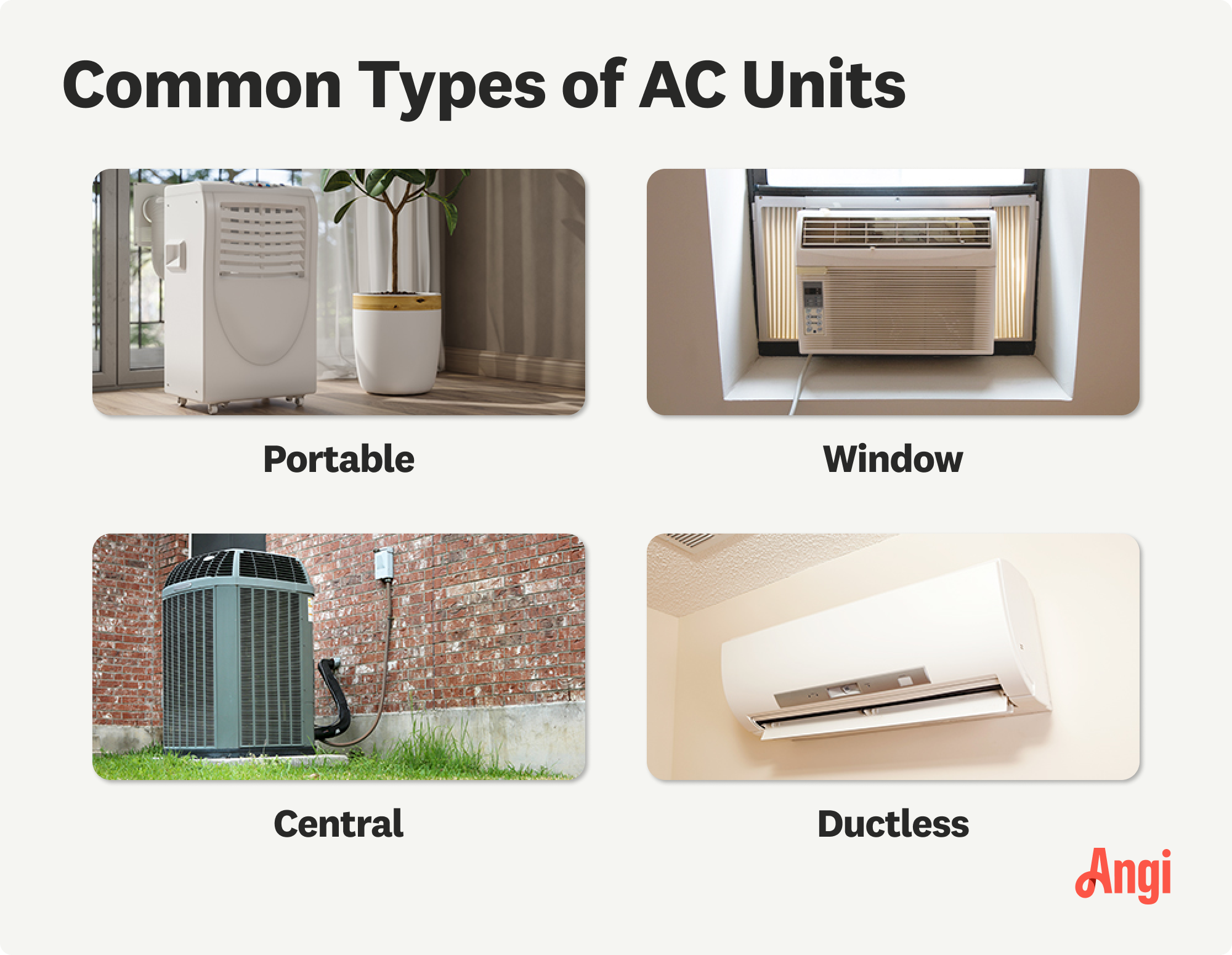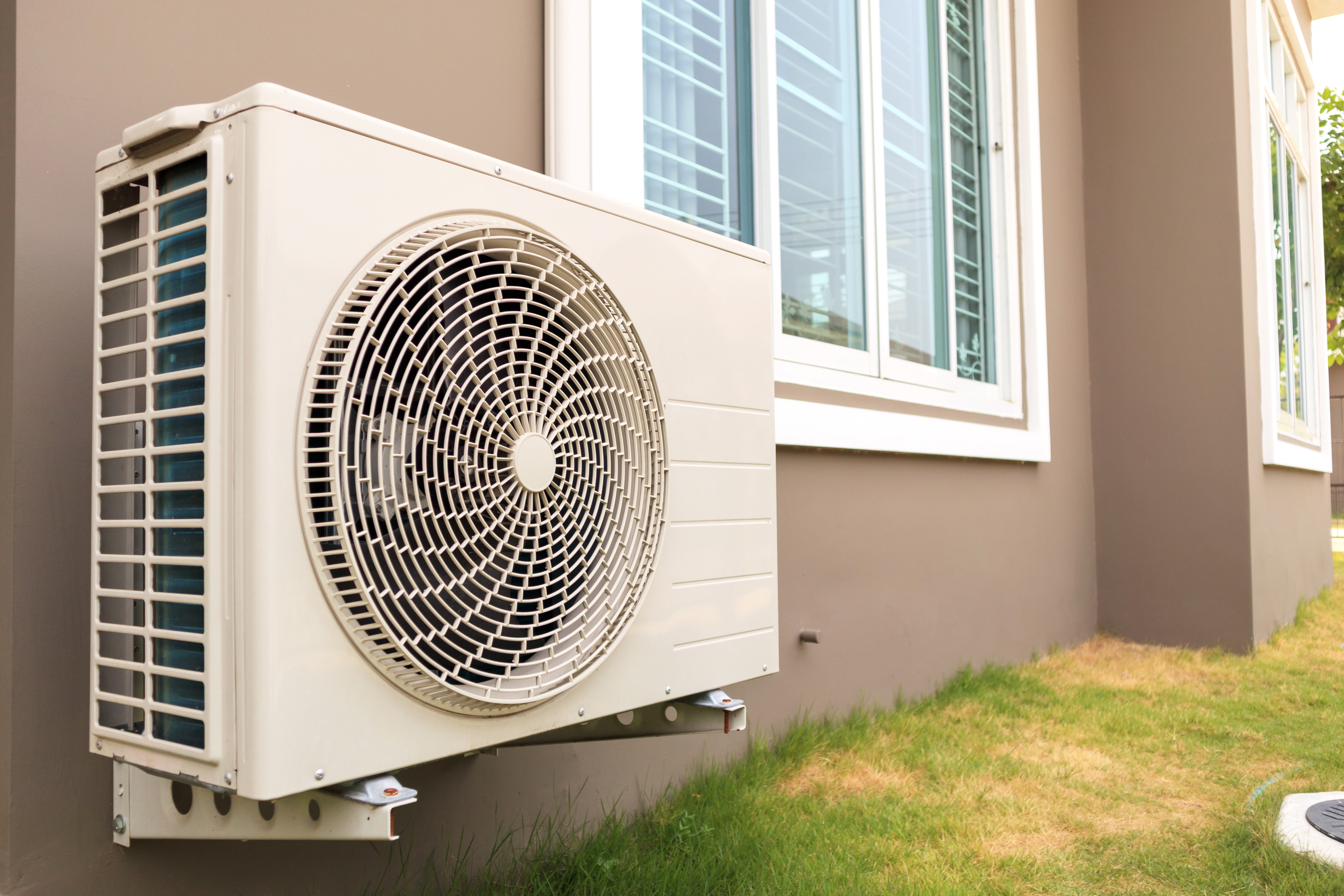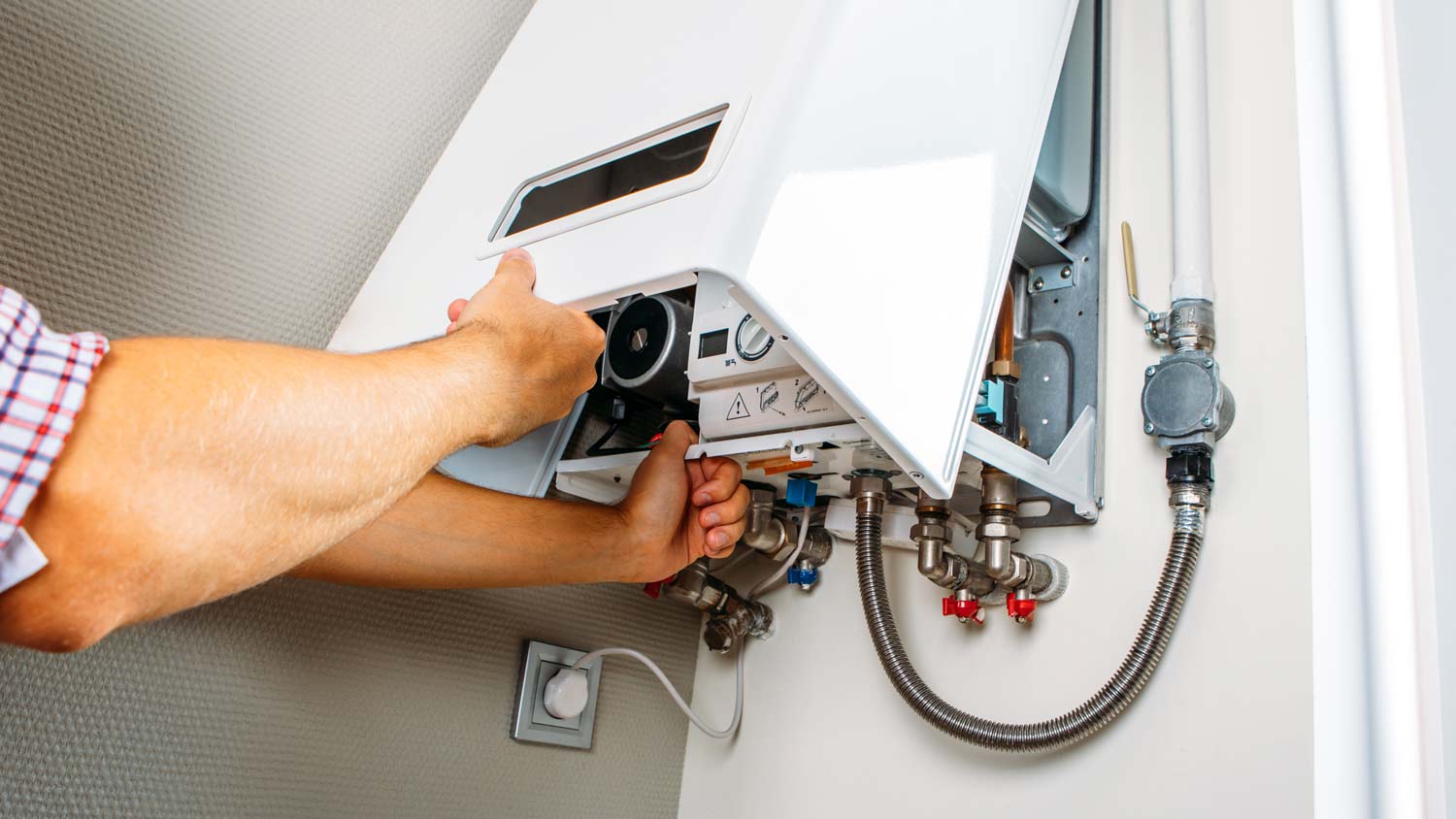
Explore factors influencing oil furnace replacement cost, additional expenses, and savings tips. Make an informed decision for a cozy home.
AC replacement in Kansas City costs $5,047 on average, but rates range from $3,274 to $7,120 depending on AC type, home size, efficiency ratings, and more.


Summer temps of 89°F make AC essential for many Kansas City homes.
The median home size of 2,127 square feet requires 3.5–4.5 tons of AC.
The minimum SEER in Missouri is 14, but a higher SEER equals more energy cost savings.
Permits cost about $58–$100 for HVAC work in Kansas City.
With summer temps hovering around 89 degrees Fahrenheit, Kansas City residents need efficient, reliable cooling systems to beat the heat. AC replacement costs in Kansas City, Missouri average $5,047, but projects average between $3,274 to $7,120 depending on the size of your home, the size of your AC, what type of cooling system you have, and how efficient the system is.
Ready to replace the old AC in your Kansas City home? Here are factors to consider when setting your project budget.
The bigger the house, the bigger the AC you’ll need to cool down more space. For a 2,127 square foot home in Kansas City, an appropriate AC size would be around 3.5 to 4.5 tons. Here are the average costs of AC replacement by house size:
| Home Size (Sq. Ft.) | Tonnage | AC Cost |
|---|---|---|
| 1,200 | 1.5–2 | $895–$1,870 |
| 1,500 | 2–3 | $1,870–$2,810 |
| 1,800 | 2.5–3 | $2,340–$4,750 |
| 2,000 | 3–4 | $2,810–$6,330 |
| 2,200 | 3.5–4.5 | $3,274–$7,120 |
| 2,500 | 4–5 | $3745–$7,915 |
| 3,000 | 5+ | $4,680–$11,000 |
The size of your home will help determine what AC size you need. For every 400 to 500 square feet, you’ll need about one ton of AC, or about 12,000 British thermal units (BTUs).
BTU, or British Thermal Unit, is a unit that measures how much energy it takes to raise the temperature of one pound of water by one degree Fahrenheit. For heat pumps, each ton of capacity is equivalent to roughly 12,000 BTUs.
Consult with an HVAC pro in Kansas City, Missouri, to find the correct AC size for your house.
| Tonnage | BTUs | Cost |
|---|---|---|
| 1.5 | 18,000 | $895–$1,870 |
| 2 | 24,000 | $1,870–$2,810 |
| 3 | 36,000 | $2,810–$6,330 |
| 4 | 48,000 | $3,274–$7,120 |
| 5 | 60,000 | $4,680–$11,000 |

In Kansas City, the most common type of AC is split-system central air, although many households also benefit from options like window units, ductless zones, and even energy-efficient geothermal heat pumps.
| Type of AC | Average Cost | Pros | Cons |
|---|---|---|---|
| Central | $3,274–$7,120 | Whole-house cooling | Requires ductwork |
| Window | $60–$400 | Low cost | Limited cooling capacity |
| Portable | $80–$700 | Moves from room to room | Takes up floor space |
| Ductless | $5,000–$28,000 | No need to install ducts | Multiple units or zones needed |
| Geothermal | $22,200–$59,200 | Energy-efficient | Difficult to install |

The higher the Seasonal Energy Efficiency Ratio (SEER), the more the AC will cost up front. But a major benefit of high-efficiency AC is that it can reduce your ongoing costs, such as for repairs and utility bills. In Kansas City, all new AC systems must meet at least 14 SEER.
| SEER | Cost |
|---|---|
| Standard efficiency (14–15) | $895–$5,047 |
| High efficiency (16–18) | $3,274–$7,120 |
| Premium efficiency (19+) | $7,120–$11,000 |
Installing a new AC system, even if you replace your existing system with the same type of AC, requires an HVAC pro who is certified to handle refrigerant. Make sure to consider these labor and permit costs before you start your project.
Labor costs about $500 to $2,500 of the total cost of AC replacement, and your AC installation pro will ensure your new system is installed properly and works as efficiently as possible.
AC replacement projects in Kansas City require an “Electrical, Plumbing and Mechanical Permit” from the City Planning & Development department. Your HVAC pro will handle the process of applying for permits and will build the cost into their project quote.
Fees are $58 for projects between $1,001 and $2,000, plus $4.33 for each additional $1,000 (or fractional part of $1,000). For example, an average $5,047 AC replacement would require a $70.99 permit. However, always check with your HVAC pro or the planning department for exact permit and inspection costs.
With some AC replacement projects, you may need additional upgrades to your home’s electrical system and plumbing to support the new AC.
Electrician: AC requires a dedicated circuit to prevent overloading the system or leaving other appliances without power. A local electrician can safely upgrade your electrical panel. Hiring an electrician in Kansas City costs an average of $149 to $486.
Plumber: A local plumber can install a proper drain line for your new HVAC system if your HVAC pro isn’t able to. Hiring a plumber in Kansas City costs an average of $167 to $443.
AC, especially energy-efficient systems, is an attractive feature to home buyers in Kansas City. Replacing an inefficient or old AC system can deliver a return on investment (ROI) of around 30% and can increase home value by about 5% to 7%. The more efficient the new system, the better the ROI.
Home is the most important place on earth, which is why Angi has helped more than 150 million homeowners transform their houses into homes they adore. To help homeowners with their next project, Angi provides readers with the most accurate cost data and upholds strict editorial standards. We survey real Angi customers about their project costs to develop the pricing data you see, so you can make the best decisions for you and your home. We pair this data with research from reputable sources, including the U.S. Bureau of Labor Statistics, academic journals, market studies, and interviews with industry experts—all to ensure our prices reflect real-world projects.
Want to help us improve our cost data? Send us a recent project quote to [email protected]. Quotes and personal information will not be shared publicly.
From average costs to expert advice, get all the answers you need to get your job done.

Explore factors influencing oil furnace replacement cost, additional expenses, and savings tips. Make an informed decision for a cozy home.

What you’ll pay in Columbus, OH, for furnace repairs depends on many factors. Here’s a breakdown of what can go wrong and the cost to fix those issues.

Discover the primary whole-house air filtration system cost factors when installing one in your home to help remove airborne contaminants and allergens.

An icy coil can create costly AC repairs. Learn what to do if the evaporator coil freezes to ensure your HVAC system operates efficiently.

Take several factors into consideration when upgrading your HVAC system. Our guide will help you choose the right HVAC upgrade.

If you need to repair a gas boiler or radiator heating system, you should first talk to a pro. Here are the top radiator repair questions you should ask.